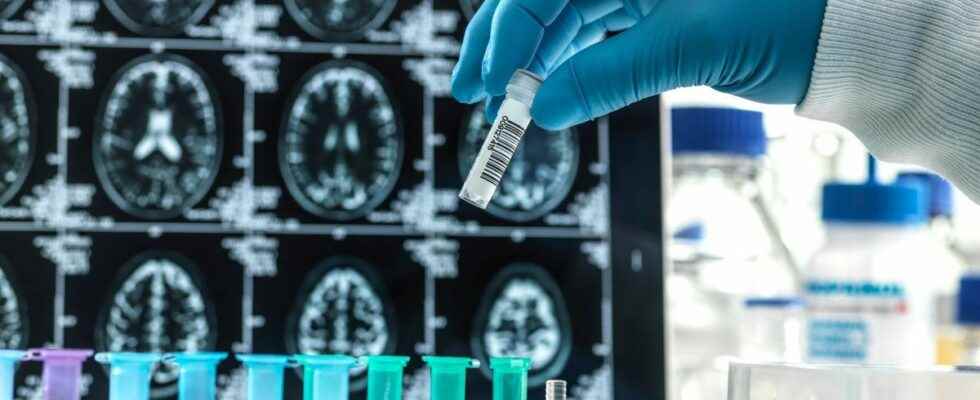Published on
Updated
Reading 2 mins.
in collaboration with
Dr Christophe de Jaeger (Longevity and geriatrics)
According to an American study, a new modifying therapy for Alzheimer’s disease could involve all blood exchanges, to effectively reduce the formation of amyloid plaque in the brain.
This is an interesting and promising advance in the treatment of Alzheimer’s disease which was announced in Molecular Psychiatry this July 14, 2022. A research team from the Department of Neurology at McGovern Medical School at UTHealth Houston, has indeed launched a series of treatments on mice, with surprising effects: by carrying out a total exchange of blood, to Partially replacing the blood of mice with amyloid precursor proteins responsible for Alzheimer’s disease with whole blood from healthy mice with the same genetic makeup, the toxic substances present in the brain would be “cleansed”.
Blood dialysis, to filter toxic elements
“This article provides evidence that the use of technologies commonly used in medical practice, such as plasmapheresis or blood dialysis, could filter the blood of patients with Alzheimer’s disease, and thus reduce the accumulation of toxic substances. in the brain”said Claudio Soto, a professor in the Department of Neurology at McGovern Medical School at UTHealth Houston.
“This approach has the advantage of demonstrating that the disease can be treated in the circulation rather than in the brain.” he continues. The aggregation and accumulation of beta-amyloid proteins in the brain indeed play a central role in Alzheimer’s disease.
After multiple blood transfusions, the researchers also concluded that the development of cerebral amyloid plaques in a transgenic mouse model of Alzheimer’s disease was reduced by 40% to 80%
A study that suggests possibilities
For Dr. Christophe De Jaeger, a geriatrician and French researcher specializing in the aging of the human body, this publication is very interesting in several respects because it combines several techniques and hypotheses that have been studied for a long time: plasmapheresis which makes it possible to filter and clean the blood toxic elements accumulated with age as well as the administration of GDF11, a growth factor (present in the blood of a mouse or a younger specimen) which would act directly on the diseased brain and cure it by crossing the blood-brain barrier.
Continuing in this blood pathway undoubtedly promises a much brighter future for Alzheimer’s patients.
